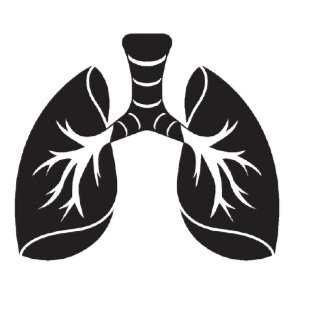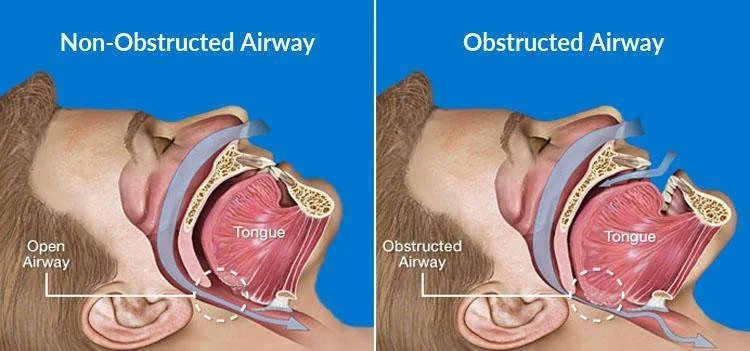Sleep Apnea (OSA): Signs, Risks, and How Sleep Studies Help
Introduction
Do you snore loudly, wake up feeling tired, or find yourself excessively sleepy during the day? These could be more than just signs of poor sleep—they may indicate sleep apnea, a serious yet underdiagnosed condition that affects your breathing while you sleep.
Obstructive Sleep Apnea (OSA) is a common sleep disorder where breathing repeatedly stops and starts during sleep due to a blocked airway. It not only disrupts your sleep quality but also increases the risk of major health issues such as high blood pressure, heart disease, and stroke. Fortunately, tools like polysomnography (commonly called a sleep study) can accurately diagnose the condition and guide effective treatment.
In this blog, we’ll explore the signs, risks, diagnosis, and management of sleep apnea—along with why Dr. Ayush Goel is a trusted name in sleep apnea care in Kolkata.
What is Sleep Apnea (OSA)?
Obstructive Sleep Apnea occurs when the muscles in the back of your throat relax too much during sleep. This causes your airway to narrow or close entirely, leading to breathing interruptions that can last for 10 seconds or more. These episodes often repeat dozens—or even hundreds—of times per night.
There are other types of sleep apnea as well:
Central Sleep Apnea (CSA): Where your brain doesn’t send proper signals to control breathing.
Complex or Mixed Sleep Apnea: A combination of obstructive and central sleep apnea.
Common Signs and Symptoms
People with sleep apnea are often unaware of their breathing disruptions. However, the following signs and symptoms can suggest OSA:
Loud, persistent snoring
Gasping or choking noises during sleep
Waking up frequently throughout the night
Excessive daytime sleepiness
Morning headaches
Dry mouth or sore throat after waking
Difficulty concentrating
Mood changes, including irritability or depression
If you or a loved one has experienced these symptoms, especially in combination, it’s time to consider a sleep study in Kolkata to investigate further.
Health Risks of Untreated Sleep Apnea
Ignoring sleep apnea isn’t just about enduring poor sleep. The condition is linked to several life-threatening health risks:
1. Cardiovascular Complications
Sleep apnea puts continuous stress on the cardiovascular system, increasing the risk of:
High blood pressure (hypertension)
Irregular heart rhythms
Stroke
Heart attacks
2. Type 2 Diabetes
There is a well-documented connection between sleep apnea and insulin resistance, which can lead to or worsen diabetes.
3. Mental Health Issues
People with untreated OSA are more prone to depression, anxiety, and chronic fatigue, affecting work, relationships, and overall quality of life.
4. Daytime Accidents
Fatigue from poor sleep leads to slower reaction times and impaired judgment, raising the risk of accidents at work or on the road.
5. Liver Problems
OSA has been associated with abnormal liver function and scarring (nonalcoholic fatty liver disease).
How is Sleep Apnea Diagnosed?
Polysomnography (Sleep Study)
The most reliable way to diagnose OSA is through a polysomnography or sleep study. This overnight test is performed at a specialized sleep center.
What a sleep study measures:
Brain waves (to determine sleep stages)
Blood oxygen levels
Heart rate and rhythm
Breathing pattern
Chest movements
Muscle activity
Eye movements
During the test, sensors are attached to your body to gather data without disrupting your natural sleep. The results help determine whether you have OSA, and if so, its severity: mild, moderate, or severe.
Treatment Options for Sleep Apnea
Once a diagnosis is confirmed, treatment is tailored to the severity and the patient’s specific needs. Common treatment options include:
1. CPAP Therapy
The gold standard for OSA management. A Continuous Positive Airway Pressure (CPAP) machine uses mild air pressure to keep your airway open during sleep.
Insert image of a patient wearing a CPAP mask
2. Lifestyle Modifications
Weight loss (if overweight)
Avoiding alcohol and sedatives before bedtime
Sleeping on your side
Establishing regular sleep habits
3. Oral Appliances
Custom-fitted devices that keep your airway open by repositioning the jaw or tongue—suitable for mild to moderate OSA cases.
4. Surgery
In severe or nonresponsive cases, surgical options to remove excess tissue from the throat or correct structural problems may be considered.
Why Choose Dr. Ayush Goel for Sleep Apnea Treatment in Kolkata?
Dr. Ayush Goel is a leading pulmonologist and sleep medicine specialist in Kolkata, with advanced training in respiratory and critical care from AIIMS New Delhi.
What sets Dr. Goel apart:
MRCP-UK (SCE) Certified
European Diploma in Respiratory Medicine
10+ peer-reviewed international publications
Expertise in conducting and interpreting sleep studies
Personalized, compassionate approach to patient care
Whether you need a consultation, diagnosis, or ongoing management, Dr. Goel provides a full spectrum of OSA treatment in Kolkata.
Final Tips Before You Go
Sleep apnea is more than just snoring—it’s a health condition that can silently harm your heart, brain, and overall well-being. The good news is that it’s highly treatable once diagnosed.
If you suspect you or a loved one may have OSA, don’t delay. A sleep study in Kolkata with a trusted expert like Dr. Ayush Goel can be the first step toward safer, more restful nights.
Book your sleep consultation today and take control of your sleep health.


